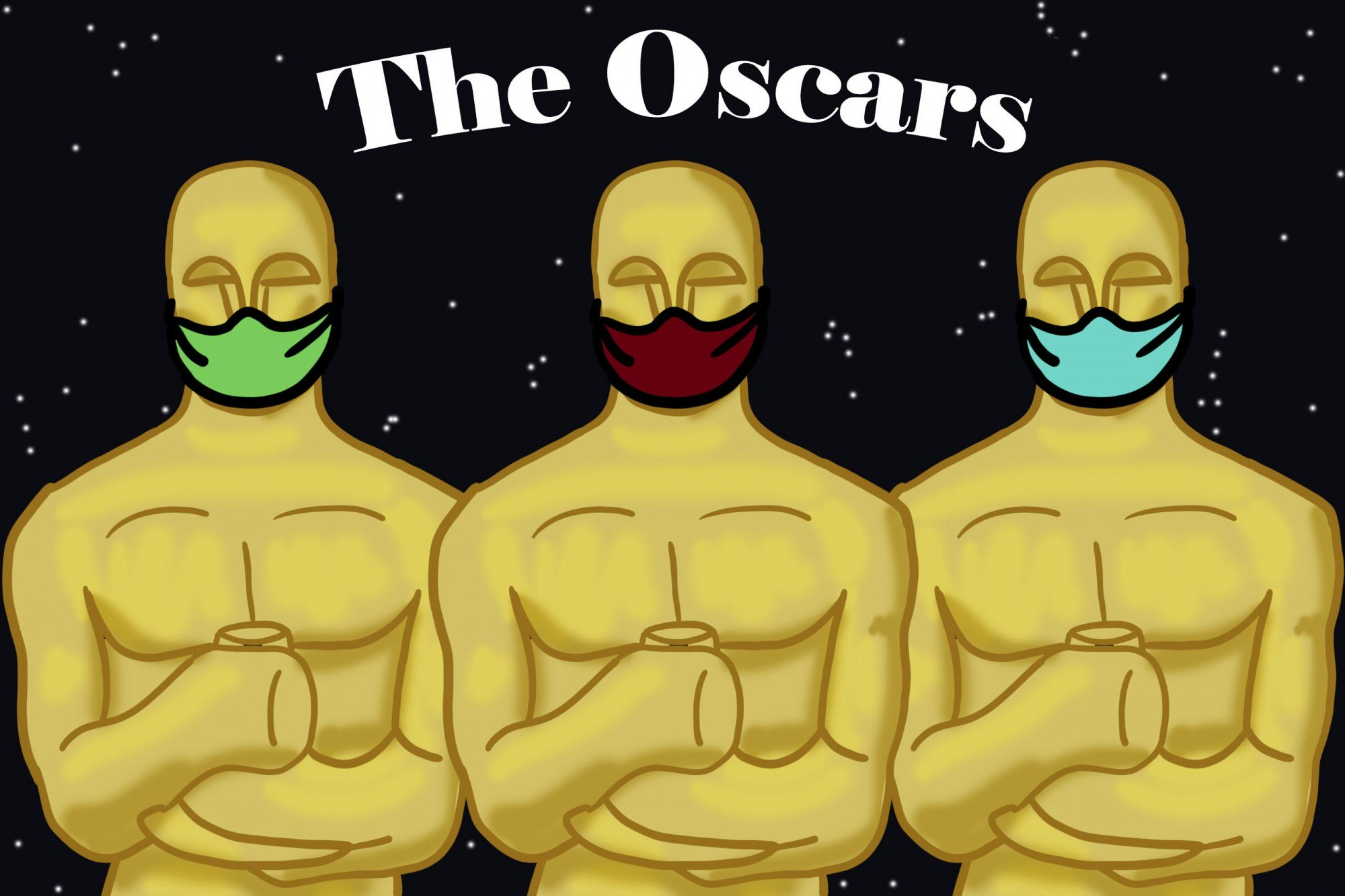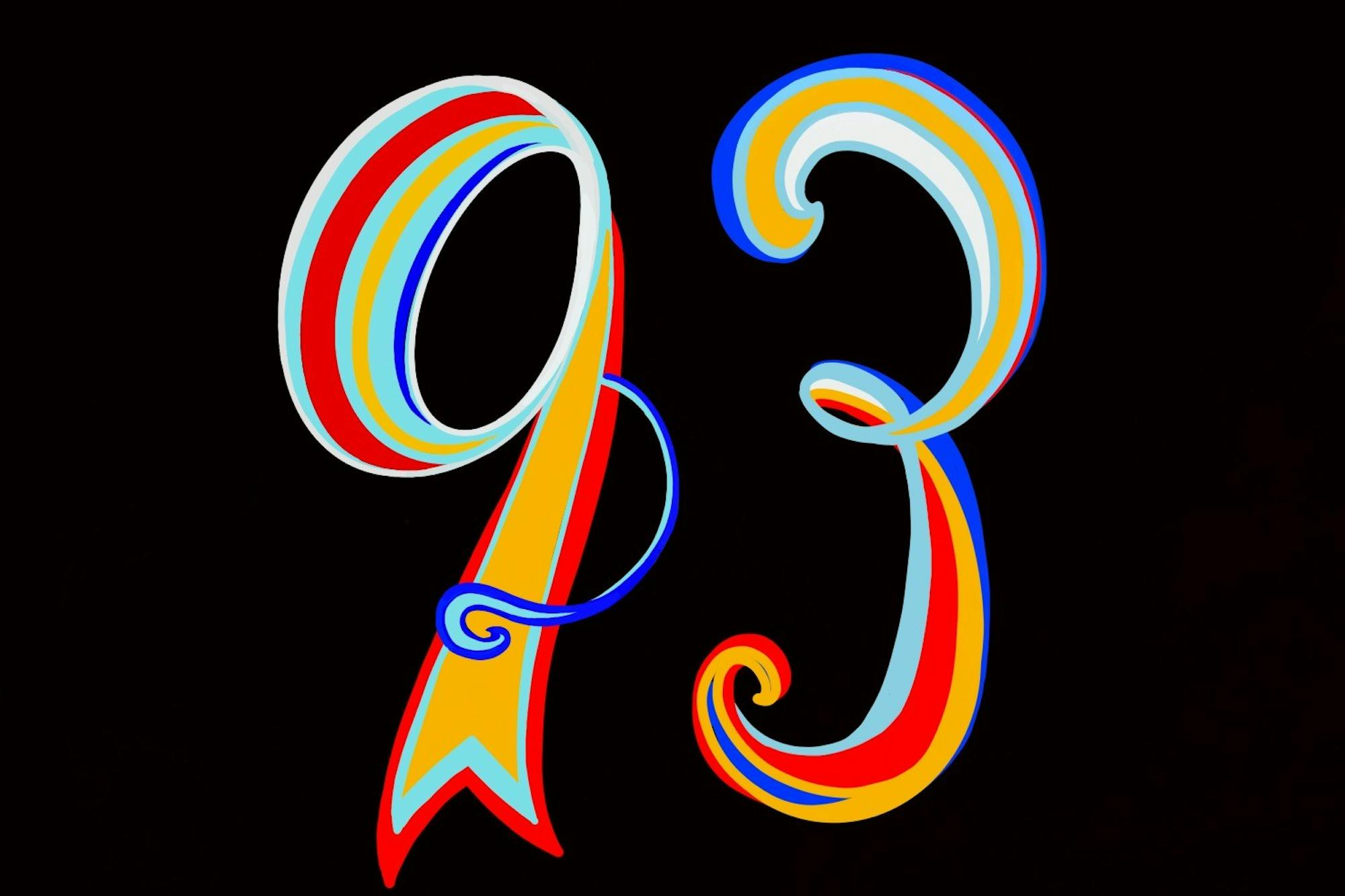In the beginning of this year’s award season, many awards shows had trouble adapting to the virtual setting necessitated by the COVID-19 pandemic. After watching the trials and tribulations of the Grammys and the Golden Globes, the Academy Awards executed their show quite well in comparison: The part-in-person, part-virtual show progressed without any major technical difficulties. For the third straight year, there was no host; instead, the Academy rotated awards presenters. Even with the success of the format, though, the ceremony had only 10.4 million viewers, making it the least-watched Oscars since the Academy started recording views in 1974.
Despite the record low viewership, the films nominated still deserve to be recognized. At last year’s Academy Awards, “Parasite” was the clear star of the night, winning three of the big five awards — Best Picture, Best Director, Best Actor, Best Actress and Best Original Screenplay — and five awards total. This year, however, there was no film that was as clearly dominant. 2020 saw half as many movie releases as 2019 due to the pandemic, and the smaller pool led to the same movies being nominated and to a less surprising atmosphere around who would win. “Nomadland” won the most awards of the night with three wins, followed by six films that each won two awards. While this relatively more even playing field was exciting, it was balanced out by the fact that there were no major upset victories like there were last year. With the somewhat controversial exception of Anthony Hopkins for Best Actor, in general, each of the major categories was won by the expected frontrunner.
Best Supporting Actor: Daniel Kaluuya for “Judas and the Black Messiah”
After winning the equivalent award at the Golden Globes just a month ago, Daniel Kaluuya won his first Academy Award for his portrayal of Fred Hampton, one of the original leaders of the Black Panthers, in the film “Judas and the Black Messiah.” He was previously nominated for best actor for his performance in the 2017 movie “Get Out.” To win this award, Kaluuya beat out Lakeith Stanfield for his portrayal of William O’Neill in the same film, Sacha Baron Cohen for his performance in “The Trial of the Chicago 7,” Leslie Odom, Jr. for his performance in “One Night in Miami…” and Paul Raci for his performance in “Sound of Metal.” This award rounds out an impressive awards season for Kaluuya, who also won a SAG Award, Golden Globe and British Academy Film Award for this role.
Best Supporting Actress: Youn Yuh-jung for “Minari”
This year’s field for Best Supporting Actress was relatively strong, including Amanda Seyfried for her role in “Mank,” Maria Bakalova for “Borat Subsequent Moviefilm,” Olivia Colman for “The Father” and Glenn Close for “Hillbilly Elegy.” The winner of the award, however, was Youn Yuh-jung for her role as Soon-ja in the Korean film “Minari.” Last year, the Korean film “Parasite” surprised many by taking most of the major categories; while “Minari” is an American film, it is mostly in Korean. Youn deserved the award for her incredible performance, and hopefully, this is a sign that the Academy will continue to recognize and award foreign language films.
Best Original Screenplay: Emerald Fennell for “Promising Young Woman”
The award for Best Original Screenplay went to Emerald Fennell, writer and director of the dark comedy “Promising Young Woman.” While Fennell was previously showrunner for the second season of the acclaimed British television series “Killing Eve,” “Promising Young Woman” was her feature film directorial debut. Also nominated were Aaron Sorkin for “The Trial of the Chicago Seven,” Will Berson and Shaka King for “Judas and the Black Messiah,” Lee Isaac Chung for “Minari” and Abraham and Darius Marder for “Sound of Metal.” The fact that Fennell was the sole writer of “Promising Young Woman” combined with the fact that it was her first-ever film makes her victory in this category very impressive.

Best Adapted Screenplay: Christopher Hampton and Florian Zeller for “The Father”
Christopher Hampton and Florian Zeller won the award for Best Adapted Screenplay for their film “The Father,” based on Zeller’s play “Le Père.” This heart-wrenching film about a man struggling with Alzheimer’s disease was buoyed by its strong script, making this win well-deserved. Hampton and Zeller’s screenplay put viewers in the shoes of a man losing his memory, which was no easy feat. “The Father” beat out other heavyweights for this award, including the writers of “Borat Subsequent Moviefilm,” “Nomadland,” “One Night in Miami” and “The White Tiger.” While each of these films had a great screenplay, the unique experience in “The Father” sets it apart from the others in the category.
Best Director: Chloé Zhao for “Nomadland”
Chloé Zhao became only the second woman in history, and the first woman of color, to win the Oscar for Best Director, following in the footsteps of Kathryn Bigelow, who won the award in 2010 for the film “The Hurt Locker.” Best Director was the first of three awards given to “Nomadland” for the night, the most of any film this year. While Zhao was the clear favorite to win this award going into the ceremony, she faced tough competition from Thomas Vinterberg for “Another Round,” David Fincher for “Mank,” Emerald Fennell for “Promising Young Woman” and Lee Isaac Chung for “Minari.” Ultimately, however, Zhao came away with the award and cemented herself in film history.
Best Actor: Anthony Hopkins for “The Father”
“The Father” received its second and final award of the night for Anthony Hopkins’s performance as Anthony, a man slowly losing his memories to Alzheimer’s. This incredibly complex role required a talented, experienced actor to play it with the power and respect it deserved, and Hopkins is one of the few actors alive who could pull it off. At 83 years of age, Hopkins is now the oldest person to ever win an Oscar for acting. Other nominees for the award included Gary Oldman for “Mank,” Steven Yeun for “Minari,” Riz Ahmed for “Sound of Metal” and a posthumous nomination for Chadwick Boseman for his role in “Ma Rainey’s Black Bottom.” While many feel that Boseman deserved the award in the wake of his tragic passing last year, Hopkins’s performance need not be overshadowed.
Best Actress: Frances McDormand for “Nomadland”
Francis McDormand won her third Academy Award for Best Actress for “Nomadland,” making her the fourth woman to ever do so alongside Katharine Hepburn, Meryl Streep and Ingrid Bergman. Her previous awards were for the 1996 film “Fargo” and the 2017 film “Three Billboards Outside Ebbing, Missouri.” This feat is extraordinary and puts McDormand among the ranks of the most celebrated actors and actresses of all-time. McDormand’s performance in “Nomadland” was stellar as always, and many other great performances were nominated, including Viola Davis for “Ma Rainey’s Black Bottom,” Andra Day for “The United States vs. Billie Holiday,” Carey Mulligan for “Promising Young Woman” and Vanessa Kirby for “Pieces of a Woman.” Notably, this is the first time since 2016 that neither the award for Best Actor nor the award for Best Actress have gone to a biopic.
Best Picture: “Nomadland”
The night’s biggest award, Best Picture, went to “Nomadland,” as many had predicted. While there were many great movies released in 2020, the success of “Nomadland” at other awards ceremonies signaled a likely victory in the Best Picture category at the Academy Awards. Chloé Zhao’s character study of a restless nomad played by McDormand was striking in its simplicity and deserves its spot as the most celebrated film at this year’s Academy Awards. Also nominated for this award were “Mank,” “The Father,” “Judas and the Black Messiah,” “Sound of Metal,” “Minari” and “The Trial of the Chicago 7.”



